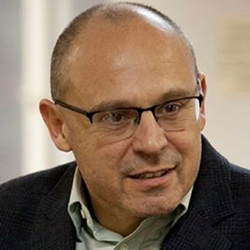Quick Links

Stay in Touch!
We value your privacy, won't share your email address and you can easily unsubscribe any time.

Facilitator Duke Duchscherer is a past member of the Board of Directors for the MK Gandhi Institute for Nonviolence. He has facilitated training in Restorative Circles and Nonviolent Communication around the world with a depth and breadth of peoples and communities from small villages at the grassroots to governmental leaders at the United Nations on five continents.
Some of this work has included supporting the transformation of active conflicts such as leading a series of restorative dialogues between the Ukrainian army and the pro-Russian community where they reside near the warfront in Ukraine(2015); or facilitating dialogue between state-level government officials, minority/indigenous groups, and those who have been directly harmed by strikes, protests, and border closings due to the promulgation of the new Nepal constitution. Duke has also worked extensively in the area of reconciliation leading numerous dialogues such as one between former Shining Path & MRTA rebels, former military, civil society leaders, and those directly harmed during the ‘time of violence’ in Peru; or between Rwandan genocide survivors and recently released prisoners who killed their families. (see the documentary In The Eyes of the Good and the website www.togetherwethrive.world for examples of Duke’s work).
Facilitated dialogue helps conflicting parties build understanding and explore solutions.
Building community well-being through bonds, bridges, and restorative relationships.
Building relationships happens through dialogue and understanding the deeper meaning behind the words spoken. It’s about active listening that focuses on feelings and needs so you may truly comprehend the speaker’s message. In this video, Duke introduces two components of communication and how the restorative dialogue process supports mutual understanding.
Duke Duchscherer shares that Restorative Circles have the ability to transform relationships. Groups may start with feelings of worry, anxiety, fear, anger, and even hatred. The dialogue process supports a shift to more ease, connection, and trust.
Duke Duchscherer explores responding to people who are committed to a punitive process rather than a restorative process. He suggests looking for what needs are met by the punitive process. Could those needs be met in a restorative process?
We value your privacy, won't share your email address and you can easily unsubscribe any time.
